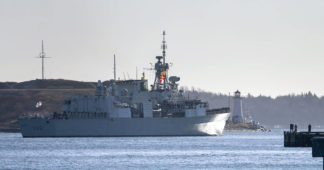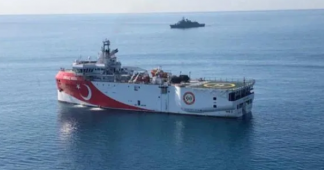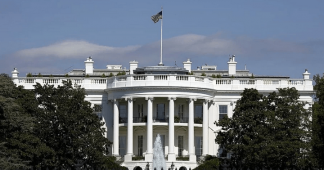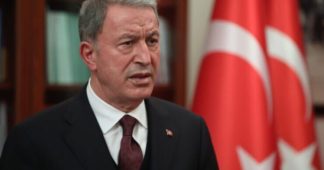By Fernando Heller
Jan 24, 2022
Coalition partner Left-wing Unidas Podemos (United We Can) and eight other left-wing parties signed a joint manifesto making clear their “total rejection” of a Spanish mission in the Black Sea and Bulgaria to support NATO if tensions in Ukraine continue to rise. The nine parties also urged Prime Minister Pedro Sánchez of PSOE to end Spain’s NATO membership.
Unidas Podemos, Izquierda Unida, En Comú Podem, Alianza Verde, Bildu, BNG, CUP, Más País-Equo and Compromis – all in the left political camp- asked the executive on Friday not to take part in the NATO deterrence mission in the region, EURACTIV’s partner EFE reported.
On Saturday (22 January), former leader and Podemos founder, Pablo Iglesias, questioned the need for Europe to get involved in a hypothetical conflict in the Black Sea region and warned about a confrontation with Russia EFE reported.
The EU does not have “the slightest interest” in a military confrontation on European soil with a country that has nuclear weapons, Iglesias has said. Spanish citizens are not “fools”, said Iglesias. They know NATO is “a military alliance to protect the interests of the United States”, he added.
Last week, some political analysts stressed that the manifesto is a new example of the differences PSOE and Unidas Podemos have regarding “hot dossiers”, as was the case with the recently approved labour reform.
Spain on Saturday dispatched the Blas de Lezo frigate to the Black Sea within the framework of a NATO mission. Madrid also plans to contribute four or six Eurofighter jets to reinforce the mission, to be deployed to Bulgaria in February.
Sánchez, on Saturday, stressed that his government “closely” follows the crisis in Ukraine and keeps regular contact with other EU leaders and NATO. “This is the time for diplomacy. We are committed to unity, détente, solidarity and dialogue to solve the crisis with Russia”, Sánchez stressed on Twitter.
Spain joined the NATO alliance in May 1982, and at a referendum in March 1986, 56.85% voted in favour of membership.
In their “manifesto for peace and to avoid a new war in Europe: de-escalation and dialogue, no troops or weapons to Ukraine”, the nine parties also expressed concern about the military escalation in Ukraine. The conflict “can only be resolved through dialogue, de-escalation and the conviction that peace is the only way”, the manifesto’s text reads.
“The European Union must avoid being dragged into the conflict and formulate concrete proposals for de-escalation to avoid a conflict that would seriously damage Ukraine and the whole of Europe,” they added.
Published at www.euractiv.com
We remind our readers that publication of articles on our site does not mean that we agree with what is written. Our policy is to publish anything which we consider of interest, so as to assist our readers in forming their opinions. Sometimes we even publish articles with which we totally disagree, since we believe it is important for our readers to be informed on as wide a spectrum of views as possible.











